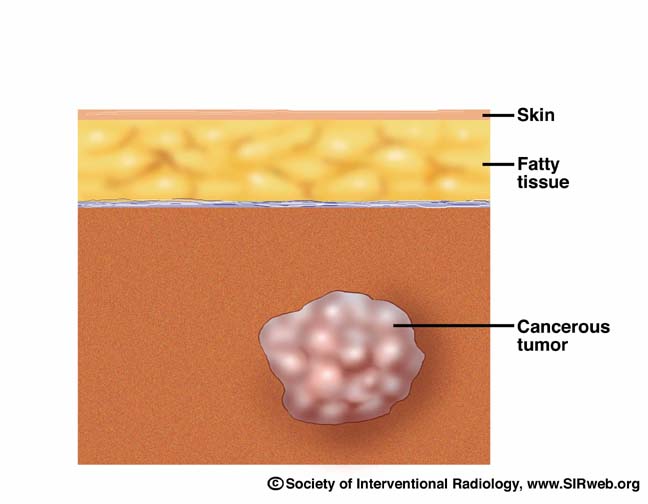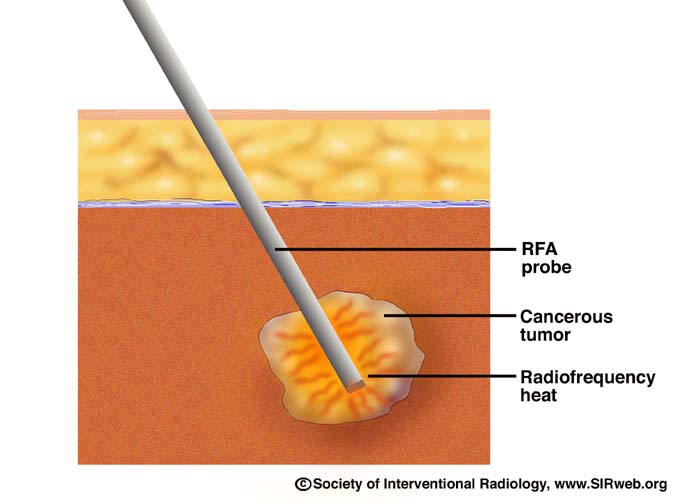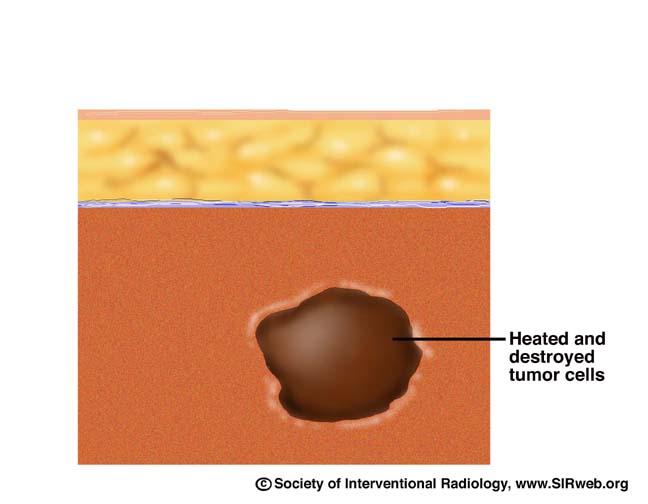Radiofrequency Ablation - Kidneys
For inoperable kidney tumors, radiofrequency ablation (RFA) offers a nonsurgical, localized treatment that kills the tumor cells with heat, while sparing the healthy kidney tissue. This treatment is much easier on the patient and is more effective than systemic therapy. Radiofrequency energy can be given without affecting the patient's overall health and most people can resume their usual activities in a few days.
In this procedure, the interventional radiologist guides a small needle through the skin into the tumor. From the tip of the needle, radiofrequency energy is transmitted into the tumor, where it produces heat and kills the tumor cells. The dead tumor tissue shrinks and slowly turns into a scar.
Additional Facts About RFA
- Is most effective when the kidney cancer is small in size (5cm or less)
- May be performed under conscious sedation or general anesthesia
- Is well tolerated-most patients can resume their normal routines the next day and may feel tired only for a few days
- Can be repeated if necessary
- May be combined with other treatment options
Efficacy
If the tumor is small, RFA can shrink and likely kill the tumor. Although early results are encouraging, long-term follow-up is necessary to determine the precise role of RFA in treating small kidney cancers. Current ongoing studies will determine long-term survival.
Because it is a local treatment that does not harm healthy tissue, the treatment can be repeated as often as needed. It is a very safe procedure, with low complication rates, and it has become more widely available over the last couple of years. The FDA has approved RFA for use in soft tissue tumors, of which renal cell carcinoma is one.
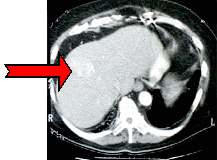
BEFORE
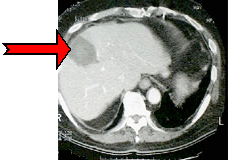
AFTER
A LIVER TUMOR TREATED WITH RFA
Dead tissue appears larger and darker than the living tumor. Over time, the tumor shrinks as the body absorbs and excretes dead cells
Risks
The risks of RFA are similar to a biopsy, namely localized bleeding and some pain. Bleeding that requires action is uncommon partly because the heating from the radiofrequency energy cauterizes the tissue and minimizes the risk of hemorrhage. Heating of the tumor may cause heating of an adjacent structure, which can lead to some healthy tissue damage. This can be avoided by carefully reviewing the size and location of the tumor before the procedure. Tumors adjacent to structures such as bowel may not be candidates for RFA or may require special procedures (injection of fluid) to create safe distances between the tumor being treated and the adjacent bowel.
Cost/Insurance
Since RFA is new, many insurance companies may require preapproval prior to the procedure.
Conditions treated include cancer of the Kidney.


